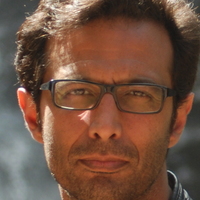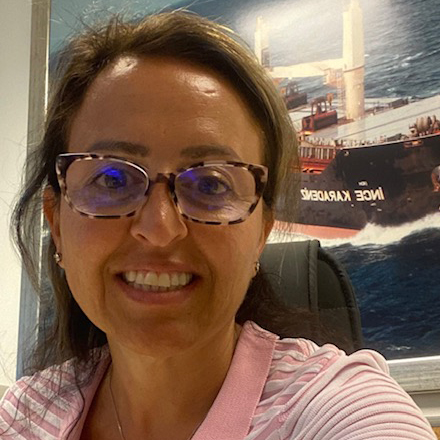

54 years on from the birth of the modern environmental movement on Earth Day 1970, the world is a very different place.
In 2024, climate change is impossible to ignore, whatever your line of work or area of study. And at OsgoodePD, our curriculum reflects that fact, with Professional LLM and continuing legal education offerings shot through with climate change legal issues.
Benjamin Richardson broke new ground when he co-taught Osgoode’s first climate change law course for J.D. students back in 2008 when we was a full-time professor there. Now based at Australia’s University of Tasmania, he recently returned to OsgoodePD as an adjunct professor and was pleased to see how teaching on the topic has evolved.
“There is still a place for standalone climate change law courses, but there is now a recognition that they need to be supplemented by embedding the climate change issue across the curriculum, because it has become such a pervasive, ubiquitous issue,” Richardson says. “We don’t want to ghettoize the issue, because everyone needs some grounding in it.”
In his own Corporate Social Responsibility course, part of Osgoode’s Professional LLM in International Business Law, Richardson’s students look at several intersections of climate and commerce, including corporate disclosure and potential greenwashing, developments in the regulation of greenhouse gas emissions, as well as how businesses can adapt to global warming for their future survival.
Considering OsgoodePD’s particular focus on skills development for lawyers and other working professionals in practice, he says it’s natural for the curriculum to contain so many classes that could be characterized as climate change law courses.
“Mainstream Canadian law firms are increasingly demanding climate-literate lawyers who can advise their clients on these issues,” he explains. “It’s not enough just to know what the legislation says. You need a grounding in the economic, political and ethical issues that affect how businesses and other stakeholders consider climate change.”
As one of three program directors for Osgoode’s part-time Professional LLM in Energy and Infrastructure Law, Bruce McCuaig has noticed a significant shift in the way the climate change is discussed during 10 years in association with the program. He currently teaches courses on Urban Infrastructure Planning & Regulation and Transportation in Canada.
“It’s a much more mature theme and topic now. The conversation is no longer about the science of climate change or how it’s actually occurring, but more about potential action and execution,” he says. “In the case of urban planning, we’ve had a few people interested in what municipalities can do to increase the resilience of their infrastructure in the face of the climate related emergencies they might face.”
“In the transportation course, we look at what levers can be put in place to incentivize people to make the right kinds of choices and decisions in terms of their consumption of energy, electrification and other issues,” McCuaig adds.
According to Jim Whitestone, McCuaig’s colleague on the faculty of the Energy and Infrastructure LLM, it’s no surprise that the prominence of climate change law courses are on the upswing, considering that the last decade has seen some of the field’s more consequential developments.
The ripples of the 2015 Paris Agreement in particular – at which almost 200 governments agreed to ensure the globe warms by no more than 2 degrees Celsius this century to avoid the worst effects of climate change – are still being felt as signatory nations grapple with the consequences of the net-zero emissions targets they have set themselves in response.
Whitestone’s own history in the area goes back much further, having served as Ontario’s assistant deputy minister responsible for climate change and environmental policy, where he led the province’s participation at the UN’s 2007 COP 13 gathering in Bali and spearheaded the implementation of Ontario’s cap and trade program with California and Quebec. In his Climate Change: International Governance, Mitigation and Adaptation course, Whitestone focuses on the Paris Agreement and other international legal and policy frameworks now in place to address climate change.
“We’re updating all the time as standards change and agreements come into place,” he says.
Domestic and international standards also feature heavily in the Osgoode Certificate in ESG, Climate Risk and the Law, an intensive five-day program designed for lawyers and other working professionals in a variety of industries where ESG risk has become a critical business priority. The program explores common ESG and climate-related risks, providing participants with the tools to navigate them through a combination of discussions and case studies.
As a law professor concerned with the movement of people and goods from one place to another, Didem Light says there can be few subjects more directly affected by the physical and legal implications of climate change than the one she teaches in International Transportation Law, a course offered as part of Osgoode’s Energy and Infrastructure LLM.
“Climate change is going to have a very big impact, not just on manufacturers of vessels, cars, buses, trains and other modes of transport, but also the people who use them and the associated infrastructure: things such as ports, airports, train stations, roads and bridges,” Light says.
In other cases, the links are not so obvious. At first glance, International Business Law LLM faculty member Emilio Dabed says that casual observers may not make the connection between his course on Business and Human Rights and climate change. However, he points out that the UN has made the protection of the environment a central theme in its Guiding Principles on Business and Human Rights. In the last decades, this umbrella international initiative has inspired many other regulatory frames and has been widely adopted nationally and internationally, Dabed adds.
In his Osgoode course, Dabed explores the governance gap that has traditionally allowed transnational corporations to escape effective regulation, thanks to a combination of weak domestic laws and “soft law” – mostly non-binding international guidelines and standards.
He explains that transnational companies were left to operate virtually unchecked until the 1990s, when major industrial players began embracing non-binding and voluntary human rights and climate related frameworks.
However, they remained largely susceptible to greenwashing. In recent years, Dabed says these soft-law frameworks have been hardened by legally binding domestic law initiatives, the adoption of these guidelines by governments and the intervention of courts and tribunals, who have proven increasingly willing to hold transnational companies to account for their voluntary commitments in relation to human rights and the environment.
“What the course tries to convey to students is this strong link between the economic activities of transnational corporations and human rights and climate change, and how to develop a model that somehow reconciles the need for economic growth on the one hand, and the fulfillment of commitments to protect human rights and the environment on the other,” Dabed says.
Vanisha Sukdeo’s course on Business Associations is a popular choice with internationally-trained lawyers seeking to requalify in Canada and she welcomes the global perspective her students bring to discussions as she encourages them to think more deeply about the ideas that are frequently portrayed as solutions to the climate crisis in the western world.
“Electric vehicles might be reducing pollution in North America, but a lot of the mining that is needed to produce batteries is taking place on the African continent, generating more pollution there. Has that really reduced emissions or just shifted them? That’s something for us to explore,” Sukdeo says. “Climate change is a very important issue to our students and has become a bigger part of the course every year.”
Before joining the faculty on Osgoode’s International Business Law LLM, Sukdeo completed a doctoral dissertation focused on labour rights and her forthcoming book will look at the impact of climate change on workers. “I’m interested in how we actually get laws in place that will protect the workers who are directly affected, especially those who are working outside and dying on the job sometimes,” she says.
Wondering if the Professional LLM is right for you? Get information on course requirements, application dates, tuition and more!

Emilio Dabed – York University, Osgoode Hall Law School, Adjunct
Instructor: Business and Human Rights

Didem Light – York University, Osgoode Hall Law School, Visiting Scholar; İstanbul Ticaret Üniversitesi, Hukuk, Faculty Member
Instructor: International Transportation Law

Bruce McCuaig – Senior Vice President, AECOM
Instructor: Urban Infrastructure Planning & Regulation; Transportation in Canada

Ben Richardson – York University, Osgoode Hall Law School, Adjunct; Queen’s University, Faculty of Law, Adjunct
Instructor: Corporate Social Responsibility

Vanisha Sukdeo – York University, Osgoode Hall Law School, Graduate Student
Instructor: Business Associations; Canadian Graduate Legal Research & Writing

Jim Whitestone – Chief Environmental and Financial Economist, Convergence.Tech.
Instructor: Climate Change

